In a House of Lords debate, Defence Minister Lord Coaker detailed the UK’s robust response to escalating threats against critical undersea infrastructure, particularly internet and energy cables.
The discussion followed incidents of cable sabotage in the Baltic Sea, including the arrest of the Russian-linked vessel “Eagle S” by Finnish authorities on Christmas Day.
Lord Coaker affirmed the Government’s commitment to addressing these threats through NATO collaboration and Joint Expeditionary Force (JEF) initiatives. “The UK Government are leading a number of JEF operations, including Operation Nordic Warden, which involves operations with respect to the Baltic,” he stated. He also highlighted NATO’s Baltic Sentry initiative, underscoring a united front to deter and respond to such attacks.
Growing Threats and Emerging Challenges
Several Lords raised concerns over the vulnerability of undersea infrastructure. Lord Teverson praised Finland’s swift action against the “Eagle S” and questioned whether the UK would act similarly.
Coaker responded: “Finland acted appropriately. As a member of JEF, we work closely with Finland. All of us are acting more robustly in the Baltic Sea and beyond to protect critical underwater infrastructure.”
The debate also touched on the wider implications of undersea cable attacks. Lord Stirrup pointed out the need for a comprehensive approach, combining military and civilian efforts. Coaker acknowledged: “The Ministry of Defence has taken action on other threats in the channel and North Sea. Further attention in the defence review will address resources and capabilities needed to deal with this increasing and emerging threat.”
Lord Campbell-Savours questioned the reliance on traditional defence strategies, advocating for a broader approach including satellite communications and selective sanctions.
Coaker stressed that military options remain essential: “We must deter people from doing things in the first place. The use of maritime assets, underwater drones, and NATO and JEF actions are key to protecting these vital cable links.”
UK Contributions and NATO Collaboration
Baroness Eaton raised concerns over the balance between engaging with China and addressing risks posed by Chinese entities.
Coaker reiterated the Government’s position: “We will challenge China where necessary to ensure the international rules-based order is protected, whether that is to do with critical underwater infrastructure or navigation rights.”
Lord Rogan sought clarity on protecting transatlantic cables passing through Irish Sea waters. Coaker outlined the UK’s measures: “The UK has a large number of assets, including maritime and surveillance aircraft, to protect underwater infrastructure. The defence review will suggest further actions.”
He stressed the importance of deterrence, adding: “One of the key functions of the Government is to protect the underwater infrastructure on which our livelihoods depend.”
Earl Russell highlighted recent sabotage of energy cables and interconnectors in the Baltic. Coaker responded: “We are applying artificial intelligence to predict ships that may threaten undersea cables, alongside maritime operations such as Operation Nordic Warden.”
He acknowledged the need for greater priority in addressing these challenges: “Ten years ago, we were not talking about these threats in the way we are now. The defence of our realm needs to change to meet these evolving threats.”
Baroness Goldie and other peers called for updates on UK naval assets and the planned multi-role support ship. Coaker confirmed that these assets would be addressed in the defence review and highlighted recent UK contributions to NATO operations:
“In December 2023, under the previous Government, a huge maritime collection of NATO and JEF ships was sent to the Baltic, including UK assets. Let us recognise what this country contributes to the defence of the world.”


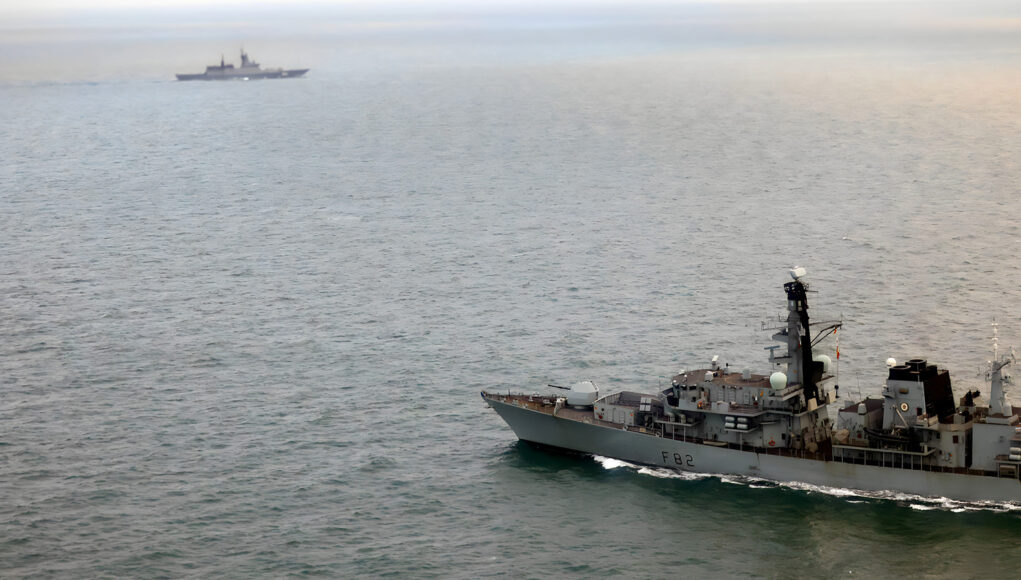
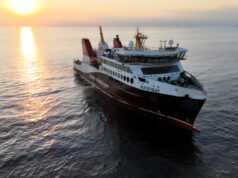
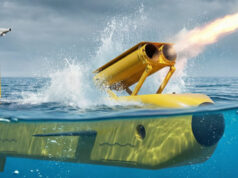
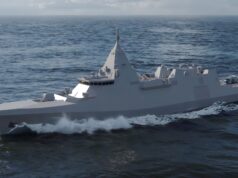
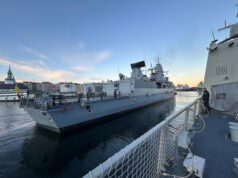
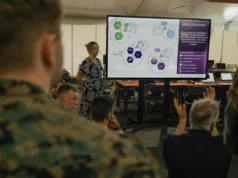

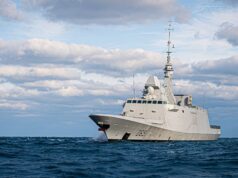
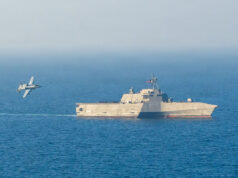
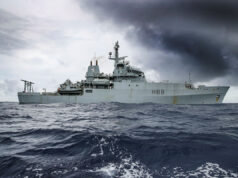
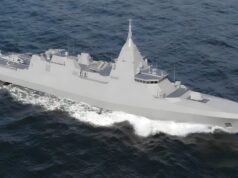

Undersea infrastructure is the new cyber space, something that’s cheap to do and isn’t really a core military issue but it’s sounds like your doing something amazing instead of having to do something useful like spend billions on ballistic missile defence.
A handful of ROV’s operating off an OSV is what’s needed, most of these cables are owned by US multi nationals with a loose grasp on paying tax.
I don’t see what they can’t monitor them themselves.
Beyond that it’s commercial vessels dragging anchor chains, a job for the police.
No military required. No billion dollar programs needed.
I am not sure that I agree with you on this one Jim. These cables are critical national infrastructure, whoever owns them notionally. The Russians were clearly involved in last week’s snagging of two important Baltic cables, using a commercial vessel repurposed. As far as the North Sea is concerned, yes, an OPV operating ROVs might be a fine first line of defence, but defence it is, and it should be operated by the Navy, not the police.
If someone damages a transformer in the UK is it a matter for the police or the army? If a terrorist organisation bombed a telephone exchange is it the police or army?
Sure if Russian submarines are involved it’s a matter for the navy but if it’s a commercial vessel operating inside of territorial waters why are the military involved?
All I’m saying is it’s a convenient thing much like cyber for MOD mission creep to give the illusion they are doing something.
Jim.
I agree with your last paragraph.
Lots of talk, but little actual action. Where are the extra vessels with ROVs?
I’ve seen MoD ordering lots of deep sea stuff for Proteus/SALMO. But that’s for a solitary vessel and a handful of SALMO Teams at the 3 naval bases.
Most of the wider surveillance effort as part of NATO, and even higher, 5 eyes, we of
course won’t be privy to.
But like Cyber, talk is cheap and if its classified easy for them to make such grand statements.
Good Day, when will the British government start increasing the required fleet to specifically protect our critical infrastructure ?
If i am correct we have 1 or 2 vessels? But given our large coast line surely that is not enough!?
Nick
Vapourware. AI is all well and good at helping to detect a suspicious activity, but you still need a suitable vessel nearby to then promptly follow that lead up. In terms of operational frigates (which is what is needed), there is usually just one operational T23 in UK waters, doubling up as TAPS and FRE. Maybe a T45 as well, but less relevant. HMS Scott is in refit so no help. RFA Proetus isn’t fully crewed and operational – and may never be according to some reports. And the 4 remaining Hunt’s based at Clyde NB are max’ed out protecting submarine transit routes. Once again, the conclusion has to be that the RN has shrunk below the minimum level to protect the UK’s national security and vital interests. But don’t worry, June’s SDR and a gradual 7% increase in the defence budget – almost certainly backloaded to the late 2020’s – will solve everything!
And maybe have an additional naval base for such vessels up in the north east around Edinburgh/Rosyth for quicker access to patrol the North Sea area in particular. Im not sure if there already is such a base?
Not really.
HMS Caledonia is a shore establishment with some MoD bits and bobs and supports RN assets at Rosyth.
DM Crombie has a Jetty for RFAs to take supplies on board.
The DT are reporting that the US are planning to convert the tri-maran LCS ships into MCMV
Lord Stirrup?
Assume the same Lord Stirrup that endorsed the 2010 cuts when CDS.
I can still recall his words “making the forces fit for an uncertain world” or cobblers to that effect.
Now happily drawing his Lords privileges.
Exactly. The same applies to Mr West.
Stirrup was the role model for political braid.
Good article on Navy Lookout on offshore infrastructure and it’s growth means the navy will need to deploy assets to protect it. Most of the bew infrastructure being built is of course energy generation so the fact is it’s a cost associated with the type of energy generation and the RN will not be able to other things because the government’s energy policies. What’s fascinating is the acceptance and no one is saying why weren’t we told this would be necessary.
Can I point your attention to a technology know as Distributed Acoustic Sensing (DAS)
A DAS system is a small box that is plugged into one end of a live fibre cable and then monitors the entire cable length for seabed interaction, detecting things like anchors or trawls up to 3km from the cable – that’s 30 minutes warning of an impact.
The box costs less to buy and install then the operation of one Navy vessel for 1 week.
On most cables in EU waters it can be installed without impact to services within 2 hours.
It may not protect the first cable to be impacted – 30 minutes is not long to intervene, but it will stop the second, 3rd 4th 5th and the gas pipeline and power cable that follow.
The governments job is not to protect “A” cable, it’s to protect all of them and this solution does just that giving 24/7 real time situational awareness to our CUI.